Filter by

A Handbook to the Geology of Cambridgeshire For the Use of Students
Beneath Cambridgeshire's towns, villages, farmland, hills, fens and waterways lie the rocks that display a variety of geological landscapes. Basement rocks are buried under sandy deposits from ancient tropical seas. The rising and tilting of the land due to large-scale movements permitted water flows that produced gradual alterations. Glaciation, erosion and dramatic variations in climate all w…
- Edition
- -
- ISBN/ISSN
- 9780511693410
- Collation
- -
- Series Title
- -
- Call Number
- -
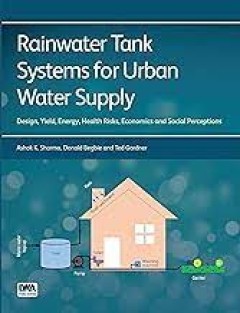
Rainwater Tank Systems for Urban Water Supply Design, Yield, Energy, Health …
Rainwater tank systems have been widely adopted across the world to provide a safe local source of water in underdeveloped rural areas, and as a substitution for mains water for non potable end uses in water stressed urban areas. They also provide flood control in monsoonal climates like Korea or in combined sewer systems like in Germany. The importance of these systems in cities has grown, as …
- Edition
- -
- ISBN/ISSN
- 9781780405360
- Collation
- -
- Series Title
- -
- Call Number
- -

Unnatural Selection: How We Are Changing Life, Gene by Gene
Gonorrhea. Bed bugs. Weeds. Salamanders. People. All are evolving, some surprisingly rapidly, in response to our chemical age. In Unnatural Selection, Emily Monosson shows how our drugs, pesticides, and pollution are exerting intense selection pressure on all manner of species. And we humans might not like the result. Monosson reveals that the very code of life is more fluid than once imagined.…
- Edition
- 1
- ISBN/ISSN
- 978-1-61091-500-7
- Collation
- VIII, 189
- Series Title
- -
- Call Number
- 24 b/w illustrations
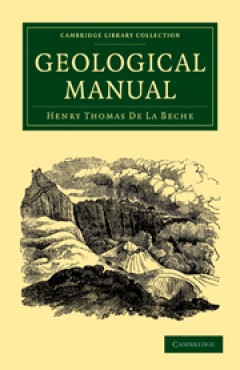
A Geological Manual
Henry De la Beche (1796–1855) was a geologist who published widely on various aspects of this science and was elected to the Royal Society in 1823. He was involved with the Ordnance Survey maps of Britain, and became president of the Geological Society in 1847. De la Beche was also instrumental in the 1851 opening of two influential institutions: the Museum of Practical Geology and the School…
- Edition
- -
- ISBN/ISSN
- 9780511973307
- Collation
- -
- Series Title
- -
- Call Number
- -
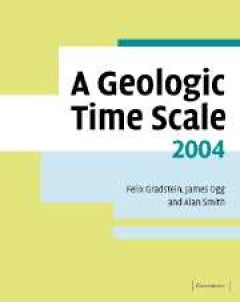
A Geologic Time Scale 2004
An international team of over forty stratigraphic experts have helped to build the most up-to-date international stratigraphic framework for the Precambrian and Phanerozoic. This successor to A Geologic Time Scale 1989 by W. Brian Harland et al. (CUP 0521 387655) begins with an introduction to the theory and methodology behind the construction of the new time scale. The main part of the book is…
- Edition
- -
- ISBN/ISSN
- 9780511536045
- Collation
- -
- Series Title
- -
- Call Number
- -

A Geognostical Essay on the Superposition of Rocks in Both Hemispheres
The explorer and multi-disciplinary scientist Alexander von Humboldt (1769–1859) was a prominent figure in the European scientific community of the eighteenth and nineteenth centuries and the first to make a scientific survey of South and Central America. His travels alone brought him widespread recognition, but the extensive field notes and research he undertook were developed further on his…
- Edition
- -
- ISBN/ISSN
- 9781139226875
- Collation
- -
- Series Title
- Cambridge Library Collection - Earth Science
- Call Number
- -
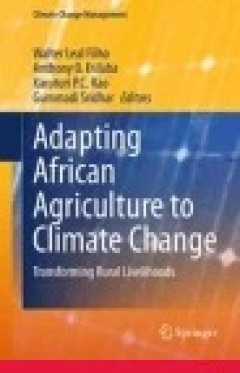
Adapting African Agriculture to Climate Change: Transforming Rural Livelihoods
This book summarizes the evidence from different African countries about the local impacts of climate change, and how farmers are coping with current climate risks. The different contributors show how agricultural systems in developing countries are affected by climate changes and how communities prepare and adapt to these changes.
- Edition
- Ed. 1
- ISBN/ISSN
- 978-3-319-13000-2
- Collation
- XI, 233
- Series Title
- Climate Change Management
- Call Number
- 551.6 ADA a
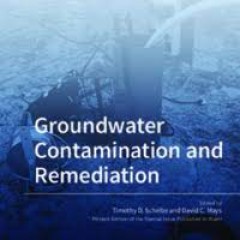
Groundwater Contamination and Remediation
This Special Issue of Water brings together 10 studies on groundwater contamination and remediation. Common themes include practical techniques for plume identification and delineation, the central role of subsurface processes, the pervasiveness of non-Fickian transport, and the importance of bacterial communities in the broader context of biogeochemistry.
- Edition
- -
- ISBN/ISSN
- 978-3-03897-430-7
- Collation
- -
- Series Title
- -
- Call Number
- 628 GRO
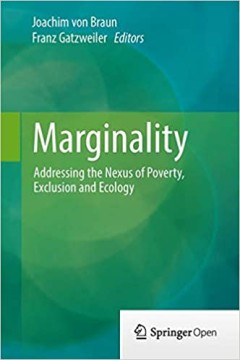
Marginality : Addressing the Nexus of Poverty, Exclusion and Ecology
This book takes a new approach on understanding causes of extreme poverty and promising actions to address it. Its focus is on marginality being a root cause of poverty and deprivation. “Marginality” is the position of people on the edge, preventing their access to resources, freedom of choices, and the development of capabilities. The book is research based with original empirical analyses…
- Edition
- -
- ISBN/ISSN
- 978-94-007-7061-4
- Collation
- XVII, 389 halaman
- Series Title
- -
- Call Number
- 362 MAR
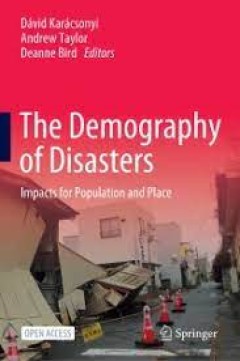
The Demography of Disasters Impacts for Population and Place
This open access book provides worldwide examples demonstrating the importance of the interplay between demography and disasters in regions and spatially. It marks an advance in practical and theoretical insights for understanding the role of demography in planning for and mitigating impacts from disasters in developed nations. Both slow onset (like the of loss polar ice from climate change) an…
- Edition
- -
- ISBN/ISSN
- -
- Collation
- -
- Series Title
- -
- Call Number
- -
 Computer Science, Information & General Works
Computer Science, Information & General Works  Philosophy & Psychology
Philosophy & Psychology  Religion
Religion  Social Sciences
Social Sciences  Language
Language  Pure Science
Pure Science  Applied Sciences
Applied Sciences  Art & Recreation
Art & Recreation  Literature
Literature  History & Geography
History & Geography